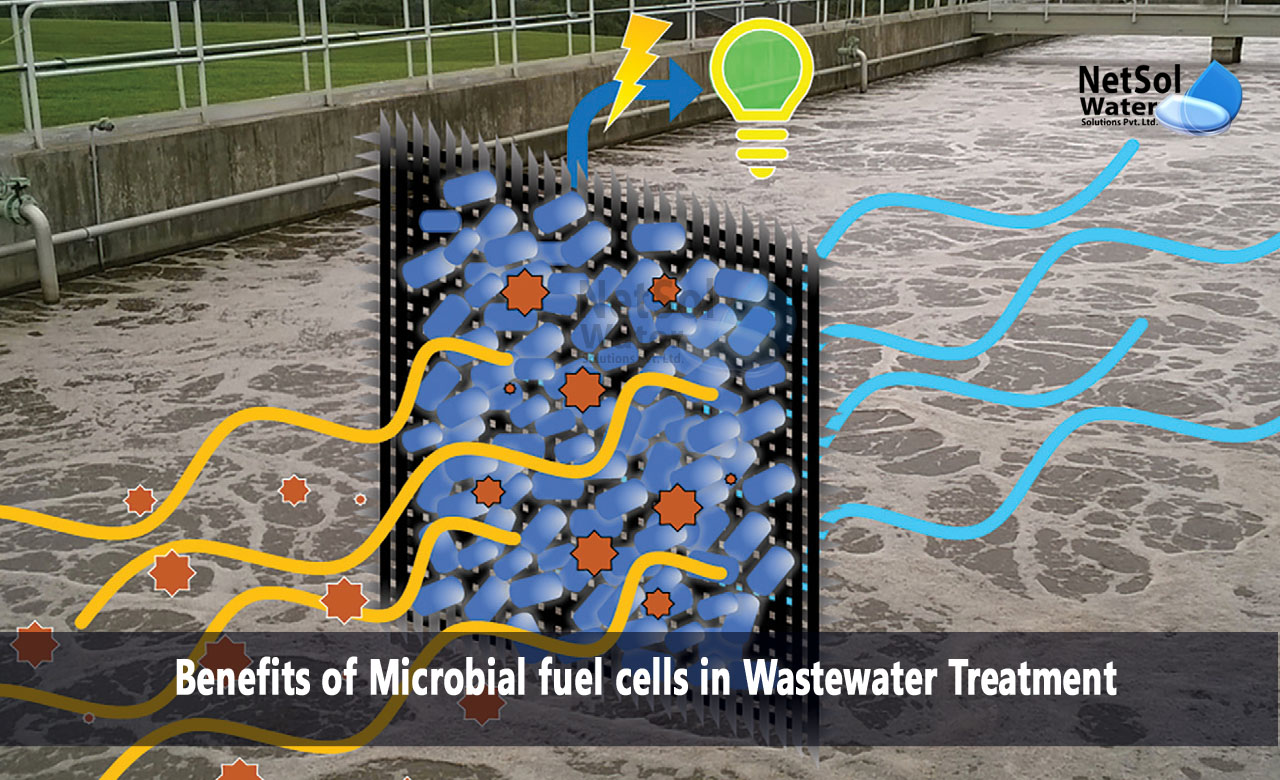What are the Benefits of Microbial Fuel Cells in Wastewater Treatment?
Wastewater remedy is a vital process for retaining public fitness and protecting the surroundings. It's vital to dispose of contaminants and pathogens from wastewater before it's launched into natural water bodies or lowered back into the environment. Traditionally, wastewater treatment plant life relies upon energy-in-depth strategies, however, there may be a promising, green alternative called Microbial Fuel Cells (MFCs). MFCs constitute a contemporary generation that no longer purifies wastewater but also generates bioenergy. In this blog, we will explore the sector of MFCs and their position in wastewater remedy and bioenergy production.
The Wastewater Challenge
The treatment of wastewater is a complex and resource-intensive process. Traditional wastewater treatment plants commonly contain a mixture of physical, chemical, and organic processes to dispose of impurities. This method consumes a good sized quantity of electricity, making it both costly and environmentally adverse. Moreover, in many regions, wastewater treatment infrastructure is getting old and inadequate to satisfy the growing demands of growing populations.
What Are Microbial Fuel Cells?
Microbial Fuel Cells are bioelectrochemical devices that use microorganisms to break down natural resources in wastewater whilst generating electric power. They harness the metabolic pastime of positive bacteria to supply electricity. The core concept of MFCs is to leverage the metabolic approaches of microorganisms, consisting of microorganisms, to facilitate the breakdown of organic compounds in wastewater. As those microorganisms digest organic dependents, they launch electrons as a metabolic byproduct.
In MFCs, separate chambers are divided via a membrane. In the anode chamber, microorganisms oxidise organic are counted and launch electrons, which tour through an external circuit to the cathode chamber, in which they integrate with protons and oxygen to provide water. The drift of electrons through the outside course generates an electrical current that may be harvested for diverse functions.
Benefits of Microbial Fuel Cells in Wastewater Treatment
1. Energy Generation: One of the most tremendous benefits of MFCs is their potential to generate power for the duration of wastewater remedy. This electric strength may be used to energy the treatment manner or contribute surplus electricity to the grid.
2. Reduced Energy Costs: MFCs can extensively lessen the power fees related to wastewater remedy. By harnessing the microbial processes chargeable for organic matter breakdown, MFCs minimise the need for outside energy assets.
3. Environmental Benefits: Traditional wastewater treatment consumes significant amounts of power and frequently uses chemicals for remedy. MFCs provide a more sustainable, eco-friendly opportunity, reducing the carbon footprint of wastewater treatment.
4. Reduced Sludge Production: MFCs also can lessen the production of extra sludge within the treatment process, minimising disposal and management demanding situations.
5. Enhanced Nutrient Removal: MFCs have the potential to improve the elimination of nutrients like phosphorus and nitrogen from wastewater, contributing to better water conditions inside the surroundings.
Applications of Microbial Fuel Cells
MFCs have an extensive range of potential applications beyond simply wastewater treatment. These include:
1. Remote and Off-Grid Areas: MFCs may provide sustainable energy sources in far-off or off-grid areas where entry to conventional energy resources is limited.
2. Sensors and Monitoring Devices: MFCs can be included in environmental monitoring systems and sensors, permitting non-stop power generation for statistics series in faraway locations.
3. Bioremediation: MFCs can be used for bioremediation, assisting ineasing up contaminated soil and water by facilitating pollution degradation.
4. Desalination: MFCs can enhance the performance of desalination tactics by lowering power intake and permitting strength recovery from saline wastewater.
Challenges and Future Outlook
While Microbial Fuel Cells preserve exceptional promise, there are nonetheless a few demanding situations that want to be addressed. One of the most challenging situations is the meagre electricity output of MFCs in comparison to different power assets. Researchers are continuously enhancing the performance of MFCs and exploring other microbial groups to beautify their performance.
In the future, we will look atthe broader adoption of MFCs in wastewater remedies, especially as the era advances. Integrating MFCs into current remedy plants and their application in decentralised and stale-grid settings has becomemore commonplace. Moreover, the development of MFC technology for other programs, together with power technology in remote areas and bioremediation, will continue to amplify.
Conclusion
Microbial Fuel Cells represent a fascinating intersection of environmental sustainability and energy technology. By harnessing the metabolic processes of microorganisms to interrupt organic reliance in wastewater at the same time as producing electricity, MFCs offer a promising solution to the challenges of wastewater remedy. Their potential for lowering power charges, environmental blessings, and flexibility in diverse applications make them a compelling era for a cleaner and greater sustainable future. As studies and improvement on this subject hold, we will look forward to even more progressive programs of MFCs, contributing to a greener and greater power-efficient source.
Netsol Water is Greater Noida-based leading water & wastewater treatment plant manufacturer. We are industry's most demanding company based on client review and work quality. We are known as best commercial RO plant manufacturers, industrial RO plant manufacturer, sewage treatment plant manufacturer, Water Softener Plant Manufacturers and effluent treatment plant manufacturers. Apart from this 24x7 customer support is our USP. Call on +91-9650608473, or write us at enquiry@netsolwater.com for any support, inquiry or product-purchase related query.



